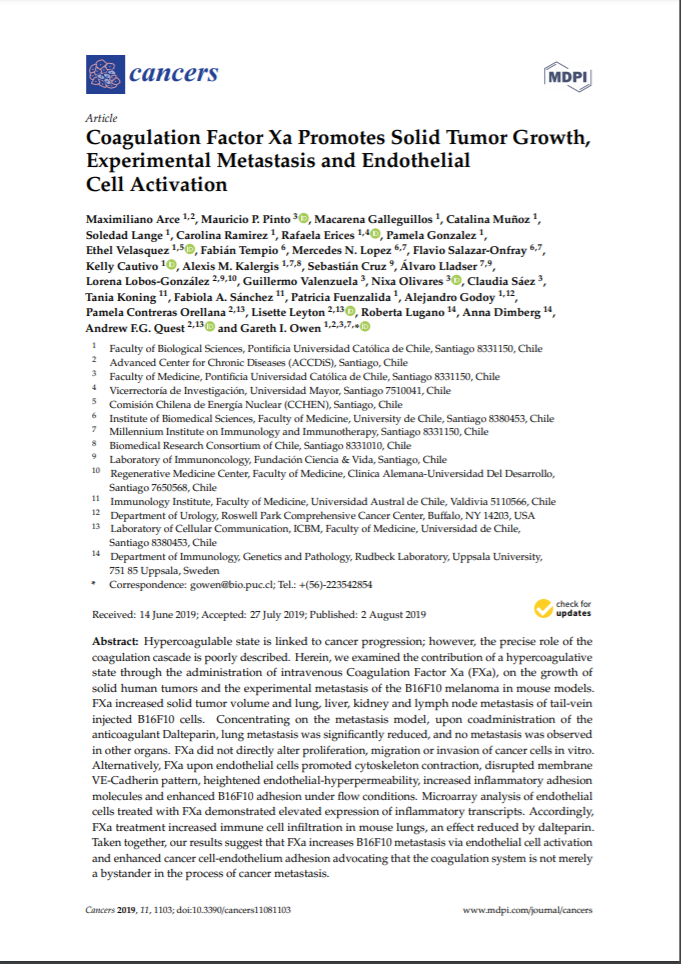Coagulation Factor Xa Promotes Solid Tumor Growth, Experimental Metastasis and Endothelial Cell Activation

Fecha
2019Autor
Erices, Rafaela [Univ Mayor, Vicerrectoria Invest]
Ubicación geográfica
Notas
HERRAMIENTAS
Acceda a títulos restringidos
¿Cómo descargar?Resumen
Hypercoagulable state is linked to cancer progression; however, the precise role of the coagulation cascade is poorly described. Herein, we examined the contribution of a hypercoagulative state through the administration of intravenous Coagulation Factor Xa (FXa), on the growth of solid human tumors and the experimental metastasis of the B16F10 melanoma in mouse models. FXa increased solid tumor volume and lung, liver, kidney and lymph node metastasis of tail-vein injected B16F10 cells. Concentrating on the metastasis model, upon coadministration of the anticoagulant Dalteparin, lung metastasis was significantly reduced, and no metastasis was observed in other organs. FXa did not directly alter proliferation, migration or invasion of cancer cells in vitro. Alternatively, FXa upon endothelial cells promoted cytoskeleton contraction, disrupted membrane VE-Cadherin pattern, heightened endothelial-hyperpermeability, increased inflammatory adhesion molecules and enhanced B16F10 adhesion under flow conditions. Microarray analysis of endothelial cells treated with FXa demonstrated elevated expression of inflammatory transcripts. Accordingly, FXa treatment increased immune cell infiltration in mouse lungs, an effect reduced by dalteparin. Taken together, our results suggest that FXa increases B16F10 metastasis via endothelial cell activation and enhanced cancer cell-endothelium adhesion advocating that the coagulation system is not merely a bystander in the process of cancer metastasis.
Coleccion/es a la/s que pertenece:
Si usted es autor(a) de este documento y NO desea que su publicación tenga acceso público en este repositorio, por favor complete el formulario aquí.